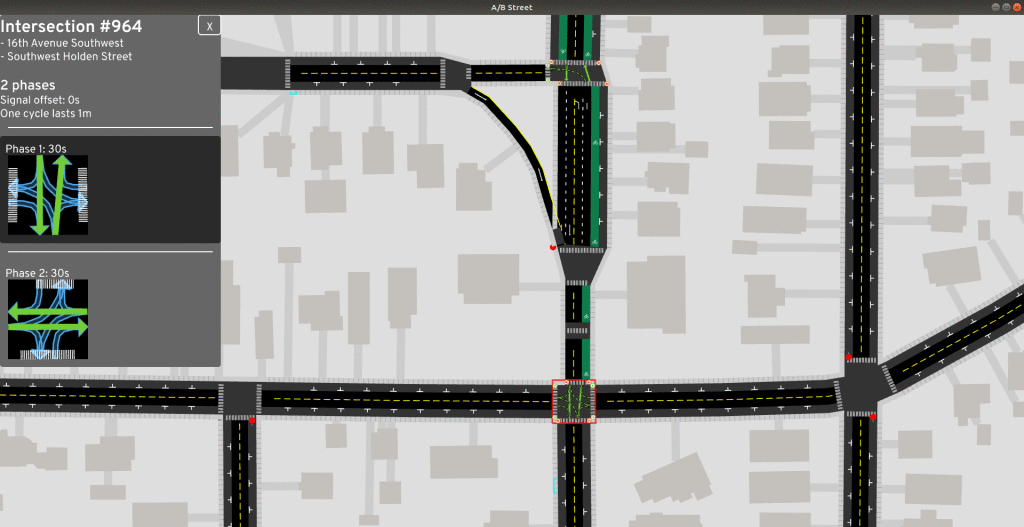West Seattle mitigations
Draft, updated June 23, 2020 by Dustin Carlino (dabreegster@gmail.com)
In March 2020, the West Seattle bridge was closed due to cracks forming. As of May, COVID-19's impact on commuting means the area still hasn't seen how the area will handle losing the main route to the rest of Seattle. A local group, HPAC, published a list of requests to SDOT to prepare the area for these changes.
This page will try to explore some of the problems and solutions from HPAC's document using A/B Street, a traffic simulator designed to explore the impacts of changes like this on different modes of transportation.
NOTE: You might want to read how A/B Street works first.
16th Ave SW and SW Holden St
HPAC has been asking for a protected left-turn phase at this intersection. I'm unfamiliar with this intersection and currently unable to scout in-person, so I'm blindly guessing the traffic signal currently has just two phases:

From watching the traffic, it seems like the east/west direction is busier, with lots of eastbound traffic headed towards WA-509. Holden St has no turn lanes, so a protected left turn phase makes sense. Let's make the change and see what happens:
Unfortuately, we can't evaluate the change yet, because the simulation gets stuck with unrealistic traffic jams in other parts of the map. This is mostly due to data quality issues in OpenStreetMap and incorrectly guessed traffic signal timings. These problems can be fixed with the help of somebody familiar with the area.
Re-evaluate arterials
The 9th item from HPAC's list asks for measuring the amount of east-west traffic to figure out what streets people are using as arterials. That's an easy analysis, using the throughput layer.
By 6am, the busiest streets include Admiral Way, S Charlestown, SW Genesee, SW Alaska, SW Holden, and SW Roxbury St. Again, it's necessary to first fix data quality problems and run a full day before doing more analysis.
Once the simulation is running smoothly, A/B Street can be used to make changes -- like lowering speed limits, adding a protected left turn phase, or converting part of the road into a bus lane -- and evaluate the effects on individual trips and aggregate groups.
Repair the bridge
Community proposals now includes a "repair the bridge" option, which should restore things to how they were before March 2020. This is useful as a baseline, to explore what traffic patterns were like before the closure.